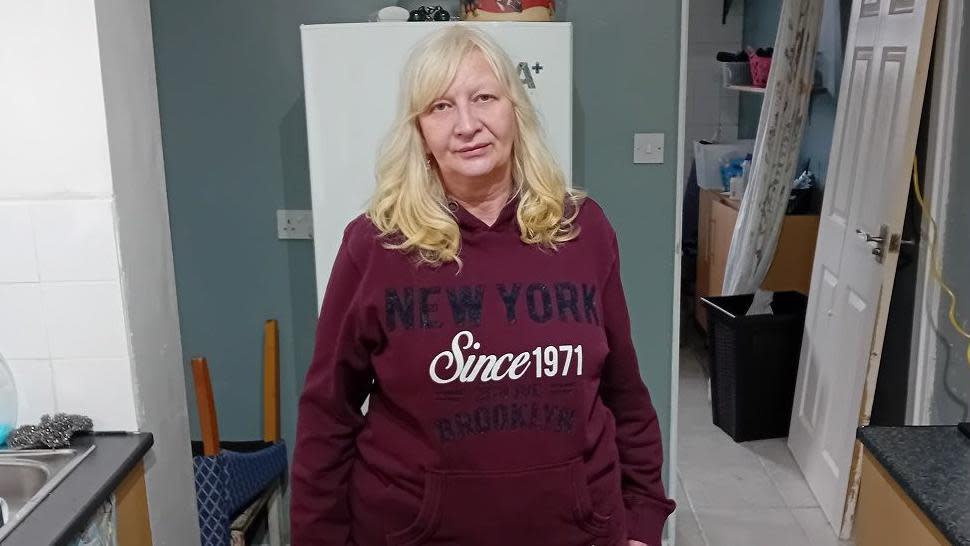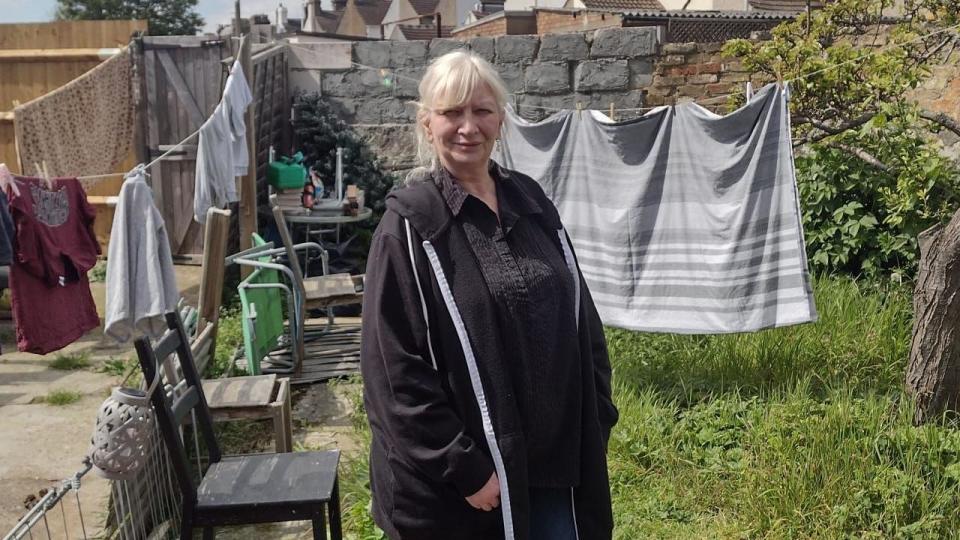Woman facing eviction told she would cope sleeping rough

A 56-year-old woman who is due to be evicted on 1 May has been told she should be able to "function reasonably well" if she ends up on the streets.
Thurrock Council wrote to Heidi Dodson rejecting her application for priority housing following an eviction notice from her landlord.
The council acknowledges Ms Dodson is eligible for help but maintained she would be able to cope if she becomes homeless and is not a "priority need".
The council told the BBC it will review letters sent to local residents in light of the incident.
It said it was "very sorry" the letter "may not have fully reflected" the sympathy the council has for those facing homelessness.
‘Lost for words’
Ms Dodson's local housing department suggested that even if being homeless led to her "having to sleep rough occasionally or in the longer term", she would not be more vulnerable than another ordinary person in the same situation.
The letter adds: "You are a person that I am satisfied can cope and function reasonably well with ‘day to day’ living and this would, I believe, still be the case if you were to become homeless or to remain homeless.”
Ms Dodson said she was upset by the wording of the letter, having previously spent five years on the streets in her late teens.
“I’m a woman of 56," she said. "To say ‘you’ll be all right on the streets, you’ll be ok sleeping rough’ - I was completely and utterly lost for words.
“To think that I’d be sleeping on a bench or standing in a doorway...
"I’ve lost so much weight from the stress.
"I’m having to ask friends that I’ve lost touch with if they can help me out, lend me a bit of money so I can put all my stuff into storage.”

Ms Dodson has had to move home 18 times. On the most recent occasion, she was served with a Section 21 “no-fault” eviction notice after seven years living in her current flat.
She said the landlord needs her to move out while he updates the property to meet fire safety regulations.
With no guarantor and only £20 in her bank account, she is unable to put down a deposit on another property which she estimates would be £1,800 for a two-bed flat in the area.
Her adult son lives with her, but he recently lost his job making pallets. Ms Dodson is also unemployed after leaving a role at House of Fraser just before the pandemic.
Thurrock Council said it would be reviewing letters sent to residents after being made aware of the recent communication to Ms Dodson.
A spokesperson for Thurrock Council said: “We have the utmost sympathy for all residents who are struggling with homelessness and are very sorry that this letter may not have fully reflected that.
"The letter followed conversations with the resident in which officers explained that she would be unlikely to meet the criteria for priority need and, as a result, interim accommodation, but that help is available to her in line with our other legal duties as she faces homelessness.
“This includes the resident and the council agreeing a plan with to help her find suitable accommodation, including outlining the financial support available to her. This work is ongoing to enable her to secure a suitable home as quickly as possible.
“There is a formal legal process we have to follow when assessing someone's eligibility for housing and this letter, and wording used, is part of that process. We accept we could have expressed that better and will be reviewing our letters to residents in light of this.”
As of last year, there are more than 4,000 people on the waiting list for council housing in Thurrock.
The council said it had acquired or built 328 social homes over the past five years, while selling 301 through the Right to Buy scheme in the same timeframe.
'No-fault' eviction
The cost of renting privately in the UK rose by 9.2% in the year to March 2024, the biggest jump since records began in 2015.
It is five years since the government in England first pledged to ban Section 21 evictions whereby landlords can evict tenants with two months’ notice, without giving a reason.
Last week, Housing secretary Michael Gove said he could not guarantee the so-called "no-fault" evictions will be banned in England by the forthcoming general election.
Described by housing charities as a key driver of homelessness, they were banned during the Covid pandemic but have since risen sharply.
The number of households in England repossessed by bailiffs after receiving a Section 21 notice rose by 49% last year, from 6,339 homes to 9,457.
No-fault evictions have been banned in Scotland since 2017.
“With homelessness at record highs, our services are regularly hearing from people who have been turned away by overstretched councils because they are not deemed in ‘priority need’," said Polly Neate, chief executive of housing charity Shelter.
"This is resulting in a spike in people being forced onto the streets, with all of the danger and serious harm that brings.
"People at risk of sleeping rough must be given a right to suitable emergency accommodation, but to end homelessness for good we need more genuinely affordable homes."


